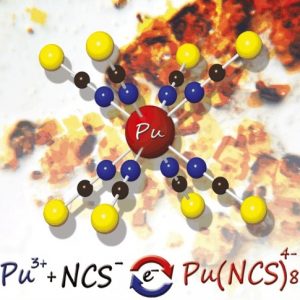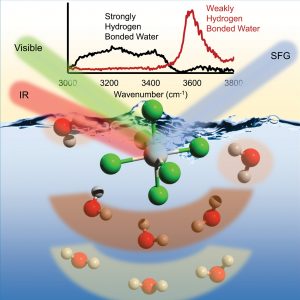The Heavy Elements Group studies the fundamental chemistry of the actinide series of elements. Of particular focus is the role of the 5f electrons in their chemistry and how they influence the structure and reactivity of these elements. Synthetic chemistry, spectroscopy, and structural characterization in both the solution and the solid states are used as probes of structure, bonding and electronic speciation, with significant focus on the transuranium elements. We are interested in identifying the periodic trends across the actinide series that inform our understanding of the role both the 5f and 6d orbitals have on their chemistry with the goal of relating the complex chemistry of the actinide elements to the larger periodic system.
Our separation science efforts are largely focused on liquid-liquid extraction (LLE), the go-to technology for f-element separation and purification. Our research is centered on detailing the free-energy components that drive the non-thermal separations, with a specific emphasis on quantifying the entropic contributions. Underpinning our work is the hypothesis that an accurate description of structural correlations spanning multiple length scales, from the atomic to the mesoscale, is required to describe and predict these liquid separations. Our experimental efforts involve a multimodal approach to system characterization, including the determination of separations efficacy through standard, in house techniques such as distribution ratios using radiotracers and dynamic light scattering. Key to our assessment of structure are synchrotron measurements of local structure (XAFS, HEXS), techniques probing longer-range solution aggregates, (SAXS and XPCS) and molecular-scale liquid surface and interfacial studies (XR, RAXR). The overall program is built a telescoping approach to quantifying these phenomena that couples atomic and molecular scale chemistry with the structure, energetics and dynamics of larger mesoscopic hierarchical assemblies. The broader implications of our research portfolio extend from use-inspired syntheses to soft-matter chemistry to interfacial behavior of multivalent ions and are meant to inform discussions ranging from energy production to chemical waste processing and storage.




